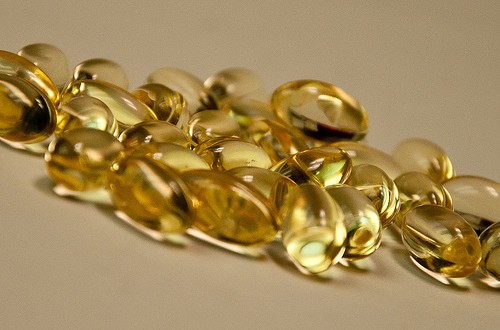by Michelle Sutton-Kerchner
Homeopathic remedies and dietary supplements promise everything from reduced pain to increased energy. Determine if your healthy lifestyle should include vitamins, what kind, and how many …
Your body’s daily nutritional needs fluctuate based on activities and the quality of your meals. Supplements cannot replace food sources. Swallowing a vitamin does not have the same impact as consuming a variety of nutrient-dense foods. The body optimally processes vitamins and minerals obtained through food sources. This is not fully confirmed with their supplemental counterparts.
Vitamins are proven to enhance a diet that is lacking, and improve blood values. Simply refer to the sales growth of fish oil supplements. It may not be realistic to consume the recommended three servings of omega-3 fish sources every week. Some people don’t even like salmon. Although evidence is not as strong as those derived from fish, an omega-3 supplement can help achieve blood levels that improve heart health, such as lower triglycerides. Try a compromise: a weekly seafood dinner and a daily supplement.

Many physicians suggest a simple multivitamin to improve where your diet may lack on any given day. The trace elements found in a daily supplement– chromium, folic acid, potassium, iron, manganese, selenium, and zinc– are often low in the typical diet. These are the main perks of taking a multi.
Physicians advise against super-dose versions; the excess is often not needed. Balance must be achieved for optimal cellular health. Consuming large quantities of a singular nutrient can displace other needed nutrients found within a cell. Avoid a monotonous diet and heavy doses of particular vitamins. Life stages and gender, along with your body’s unique needs based on genetics and health history, help determine which, if any, extra vitamins and minerals are beneficial.
A recent finding reported men over age 50 years can reduce their cancer risk by taking a multivitamin. This study, published in The Journal of the American Medical Association, proved multivitamins help avoid vitamin and mineral deficiencies, and also help prevent cancer in middle-aged men and older.
Approximately 15,000 males aged 50 or older were followed for an average of 11 years. Men who took the multivitamin had an eight percent reduction in total cancer compared to the group taking a placebo. Until this study, the long-term effects of multivitamins was unknown. Further research needs to be conducted to determine if similar benefits are noticed by women and younger men.
A woman’s dietary needs fluctuate based on menstrual cycles, childbearing status, and menopause. These stages require their own boost of vitamins and minerals to keep blood levels healthy and bones strong. Folic acid supplements during pregnancy are known to decrease the risk of some birth defects. Calcium during younger years, especially for genetically predisposed women, can deflect osteoporosis in later years.
Iron Deficiency
Iron deficiency is the most common nutrient deficiency in the United States. It is mostly a concern for women during childbearing years. Menstruation, pregnancy, and breastfeeding require increased iron. Approximately half of pregnant women develop iron-deficiency anemia. Children are also at risk for iron deficiencies. A chicken-nugget lover undergoing a growth spurt can quickly use iron reserves.
Recommended Daily Allowance of Iron:
- Men over age 19 years and postmenopausal women: 8 milligrams
- Women between ages 19 and 50 years: 18 mg
- Pregnant women: 27 mg
The amount of iron absorbed by the body varies and is increased when iron stores are low.
Most individuals who are anemic experience excessive fatigue, become easily dizzy, are frequently cold (especially in the extremities), and appear pale. During iron-deficiency anemia, red blood cells lack the iron required to produce hemoglobin, the protein that makes up red blood cells. This prohibits them from transporting oxygen from the lungs to the body’s many cells for energy production.
The ideal way to increase iron levels in the blood is through a balanced diet of many iron-rich foods. To help the body absorb iron, try to combine these foods with those high in vitamin C. Coffee, tea, milk, and soy protein block the absorption of iron so avoid consuming them simultaneously with iron-rich choices.
Iron supplements are an alternate option, especially for those who avoid meat or dislike leafy veggies. Take them with food to avoid stomach upset. Ferrous gluconate tends to be gentler on the digestive system for those who suffer common side-effects like constipation and heartburn. It is essential to monitor the need for continued iron supplements through regular blood tests. One cannot overdose on iron through food sources, but may when taking iron supplements. Be sure their use is necessary, especially as needs change based on life-stages.
Iron Toxicity: The Institute of Medicine indicates 45 milligrams per day as the highest daily dose of iron that appears to be safe. Taking more than 45 milligrams daily may cause digestive problems such as nausea, vomiting and constipation. Children under age five years are susceptible to iron poisoning by accidentally ingesting supplements. Keep iron supplements in childproof containers and out of reach.
An Evolving Reputation

Ongoing research in health sciences results in daily discoveries. Yesterday’s cancer-fighter can become tomorrow’s heartburn remedy. One finding may discredit a previous. Hence, many households have cabinets full of vitamins, some of which may counteract others or be unnecessary. Without realizing it, you can easily end up taking enough vitamins to require an entire glass of juice to swallow. Sound familiar?
Many assume vitamin and mineral tablets are a natural solution to medical issues. Often, they are considered an alternative to medication. This can be true, as per the aforementioned benefits of fish oil in place of triglyceride-lowering medication. Yet, it is critical to remember these supplements are indeed chemicals, natural-occurring or synthetic lab-generated versions. At worst, they can be a needless out-of-pocket expense that triggers unpleasant side-effects.
Review the supplements you consume, and other over-the-counter products, with your physician. After a dietary analysis, s/he can make recommendations and monitor your use and reactions. Your physician should be aware of all holistic health remedies to avoid potential drug interactions. If you are a vitamin advocate, be responsible. Follow research on the supplements you consume. Discuss them with healthcare experts.
Athletes & Supplemental Substances
 New research reveals the use of questionable substances by athletes has grown. With a trend toward a lean, muscular physique, teens in particular are adding protein powders to their diet and exercise regimens. Steroid use continues to grow. In the past, this was mainly a concern of teenage boys. According to a study published in the journal Pediatrics, these enhancements are now almost as widespread among girls.
New research reveals the use of questionable substances by athletes has grown. With a trend toward a lean, muscular physique, teens in particular are adding protein powders to their diet and exercise regimens. Steroid use continues to grow. In the past, this was mainly a concern of teenage boys. According to a study published in the journal Pediatrics, these enhancements are now almost as widespread among girls.
The new focus for adolescents goes beyond having a healthy body. The goal is to achieve perfection, which is an impossible cultural ideal. The increased use of protein supplements, energy drinks, and steroids reflects a shift from the true purpose of fitness. With a mission to achieve the impossible, athletes and non-athletes alike are striving for bodies built by enhancements rather than skill, exercise, and old-fashioned fun.
 If you’re an athlete (young or not-so-young) who relies on supplements and vitamins, read the labels. To avoid being disqualified because of their use, be sure the product was endorsed by the sport’s particular governing body. Check for a USP stamp. This assures oversight and approval in the product’s ingredients. Questionable online retailers and gimmicks may not present a true depiction of what is in the bottle.
If you’re an athlete (young or not-so-young) who relies on supplements and vitamins, read the labels. To avoid being disqualified because of their use, be sure the product was endorsed by the sport’s particular governing body. Check for a USP stamp. This assures oversight and approval in the product’s ingredients. Questionable online retailers and gimmicks may not present a true depiction of what is in the bottle.
Try a wholesome approach: Pile your plate with broiled chicken breasts cooked with favorite seasonings. Have a pre-exercise espresso, if needed. The dangers of bulking up through reliance on supplements can outweigh the tank-shirt appeal. You may win the game, but lose the series.
When striving for your healthiest self, remember vitamins and minerals are supplements not substitutes. Theories on their efficacy and use are constantly changing with new research. Focus on proper nutrition and exercise, truly natural elements in a healthy lifestyle. In combination, the side-effects are great.
Sources
“Adolescents Looking to Bulk Up Turn to Controversial Steroid Use,” by Lawrence LeBlond at www.redorbit.com.
“Is It Possible To Take Too Much Iron?” by Shereen Jegtvig at www.about.com.
“Multivitamins: Should You Take One?” by Beth W. Orenstein at www.everydayhealth.com.
“Vitamins and Supplements Lifestyle Guide” at www.webmd.com.
“What Is Iron-Deficiency Anemia?” by Tracee Cornforth at www.about.com.
“Why Iron-Rich Foods Are Important,” by Chris Iliades at www.everydayhealth.com.
Image Credits
Vitamins (introductory photo): http://www.flickr.com/photos/8047705@N02/5481406508/
Oranges: http://www.flickr.com/photos/desiitaly/2141012694/
Herbal garden: http://www.flickr.com/photos/33037982@N04/7355964200/
Young female athlete: http://www.flickr.com/photos/45688888@N08/5868478018/
Young male athlete: http://www.flickr.com/photos/67708415@N08/7890377602/
 Fitness & Wellness News Your Source for Fitness News, Wellness News, Health News, and Nutrition News!
Fitness & Wellness News Your Source for Fitness News, Wellness News, Health News, and Nutrition News!




